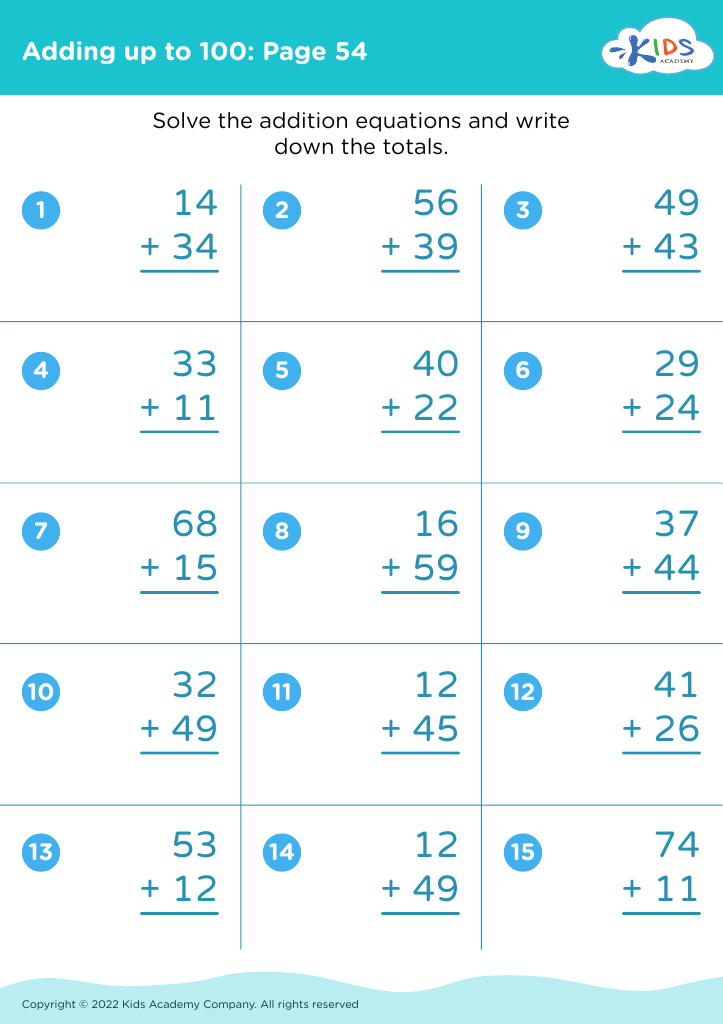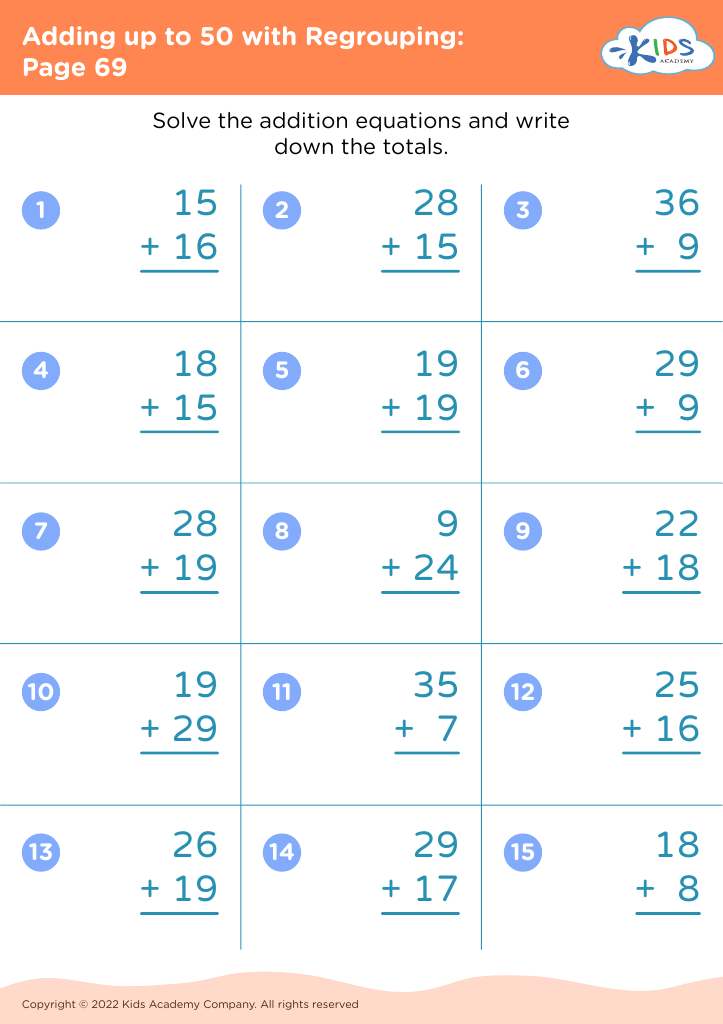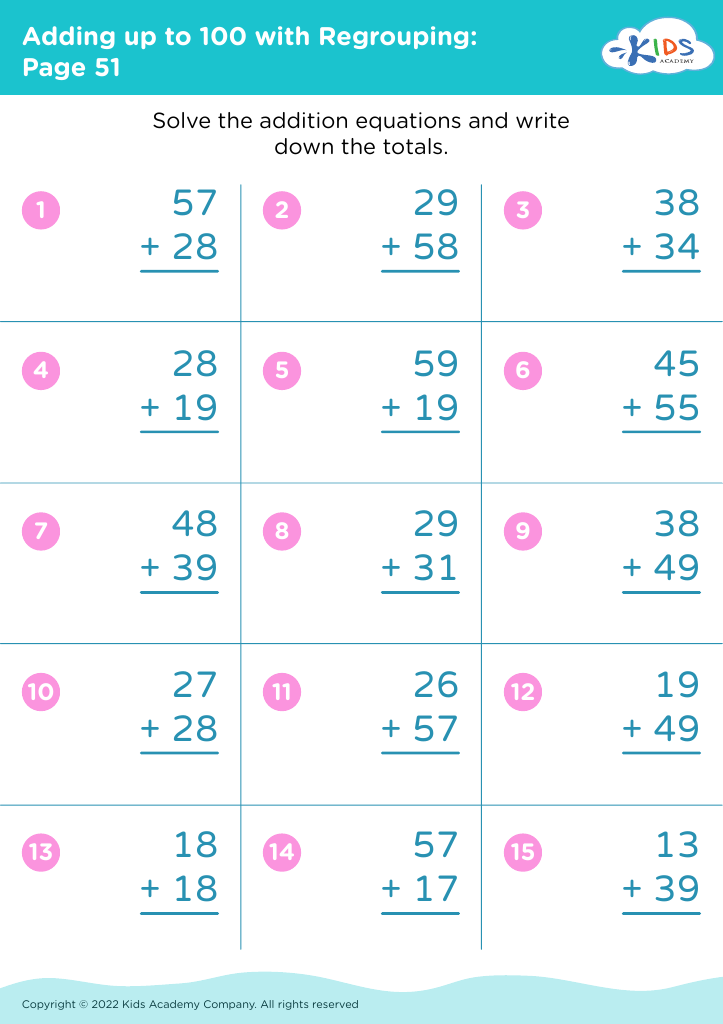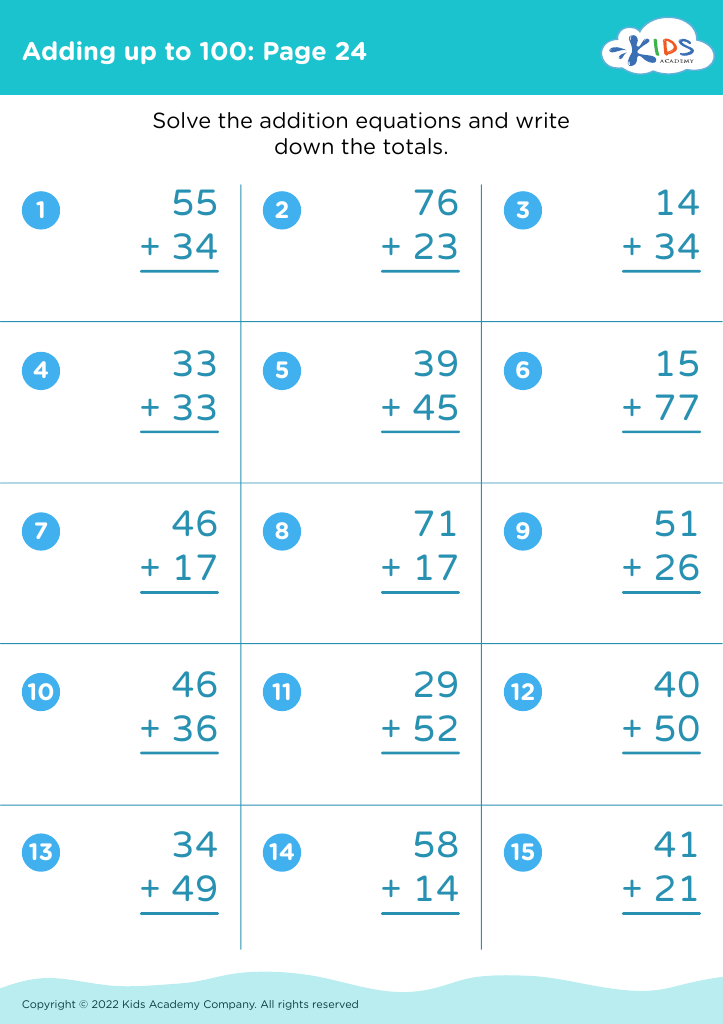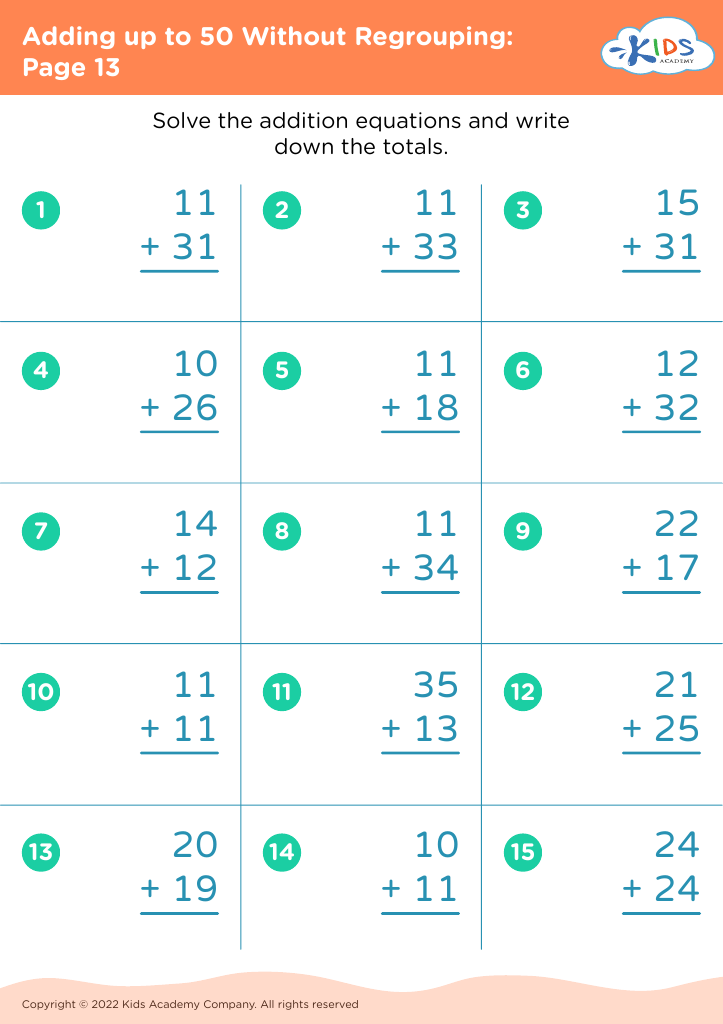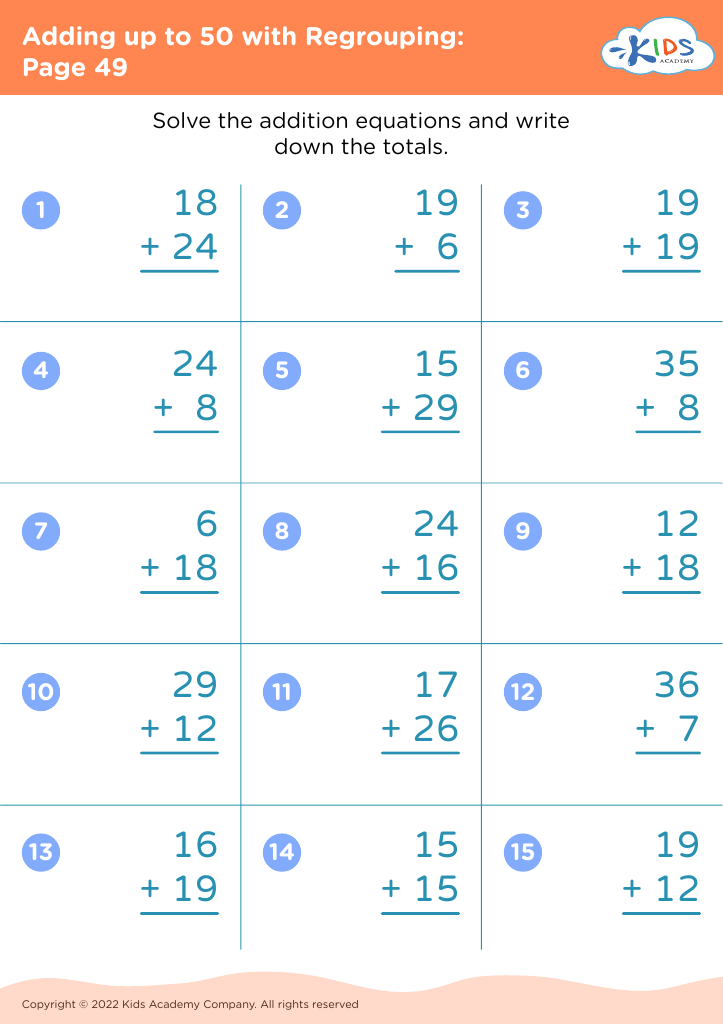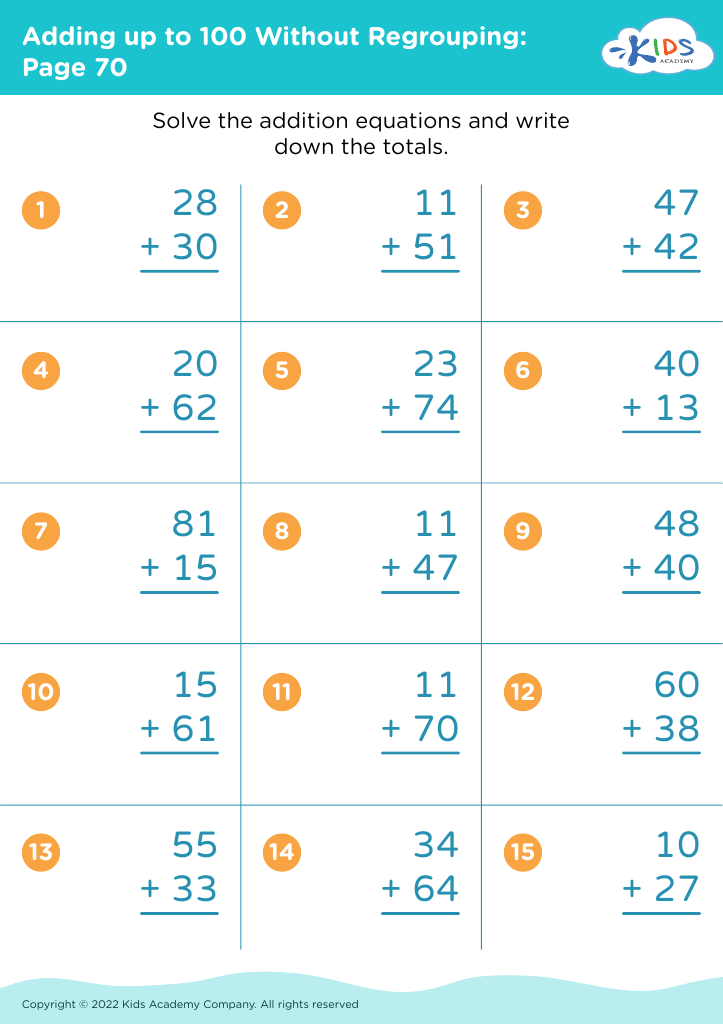Enhance counting skills Addition Worksheets for Ages 4-8
13 filtered results
-
From - To
Discover our engaging "Enhance Counting Skills Addition Worksheets" designed for children ages 4-8! These fun and interactive worksheets help young learners master essential counting and addition concepts, promoting a strong foundation in math. With a variety of colorful activities, kids will practice recognizing numbers, counting objects, and solving simple addition problems. Our thoughtfully crafted resources encourage hands-on learning, making math enjoyable and stress-free. Perfect for both classroom and home use, these worksheets aim to build confidence in young mathematicians. Start your child's math journey today and watch them thrive with our captivating addition worksheets! Explore now for endless learning possibilities!
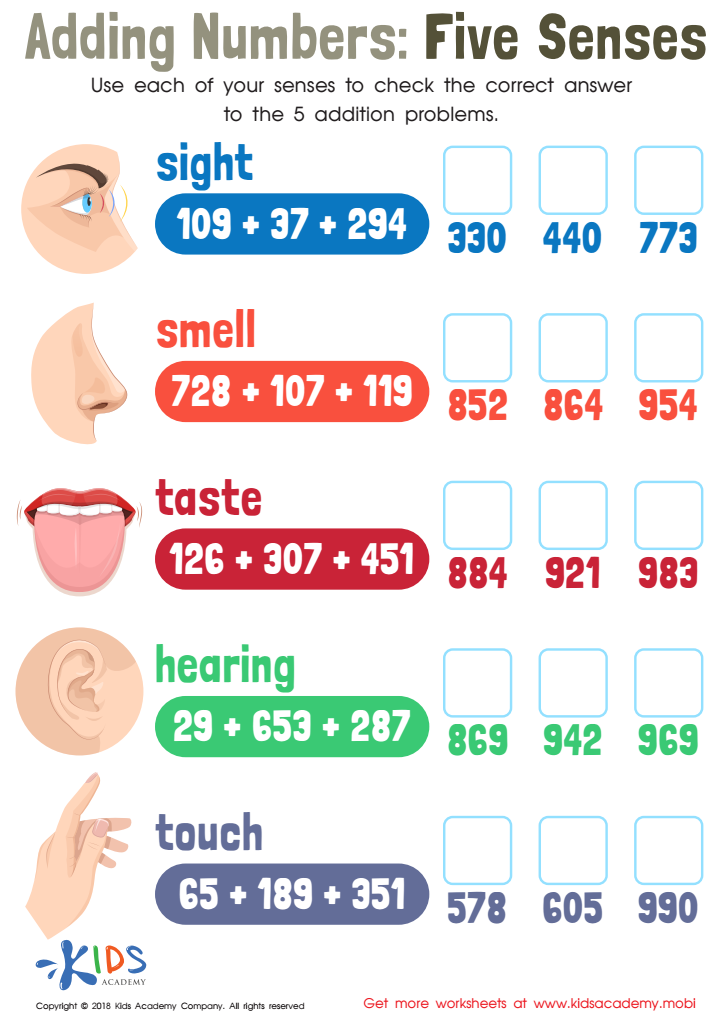

Adding Numbers: Five Senses Worksheet
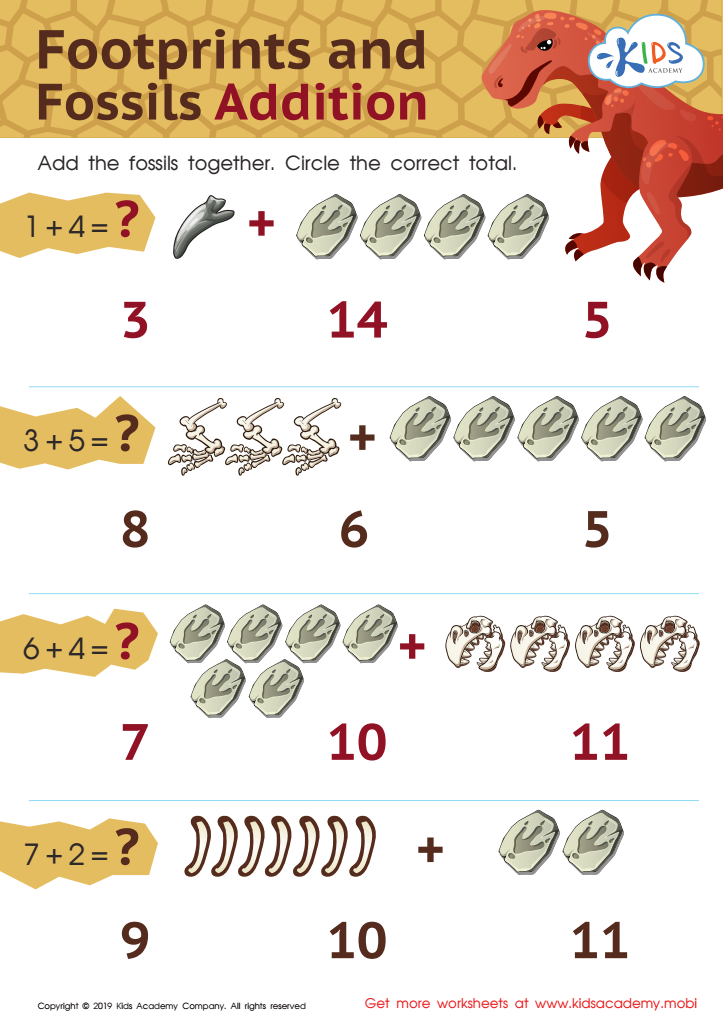

Footprints and Fossils Addition Worksheet
Enhancing counting skills and addition for children aged 4 to 8 is crucial for several reasons. First, foundational mathematical skills are essential for high academic achievement later in life. Counting is the first step in understanding numbers and mathematical concepts; it lays the groundwork for more complex operations and problem-solving abilities. When children become confident counters, they are more likely to succeed in subsequent mathematical challenges.
Moreover, counting and basic addition play an integral role in everyday life. These skills help children manage tasks like telling time, measuring ingredients in cooking, or even budgeting their allowances, fostering independence and confidence in handling real-world situations. Early mastery also boosts overall cognitive development - skills developed during these formative years enhance critical thinking, reasoning, and logical analysis.
Teachers and parents should note that engagement and interactive learning strategies, such as games and hands-on activities, increase children's interest and motivation in these subjects. Helping children grasp addition during the formative years not only makes math enjoyable but also ensures they have a solid foundation as they progress academically. Ultimately, fostering counting skills in early learners is an investment in their future success and well-being, promoting lifelong learning and curiosity.


 Assign to My Students
Assign to My Students
